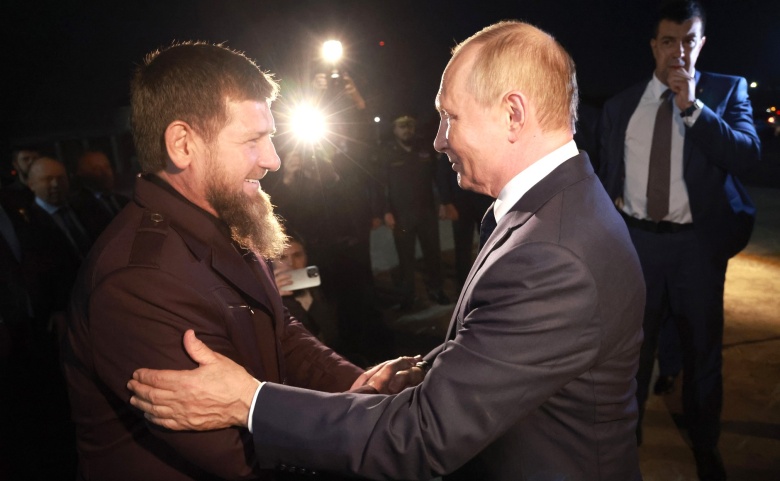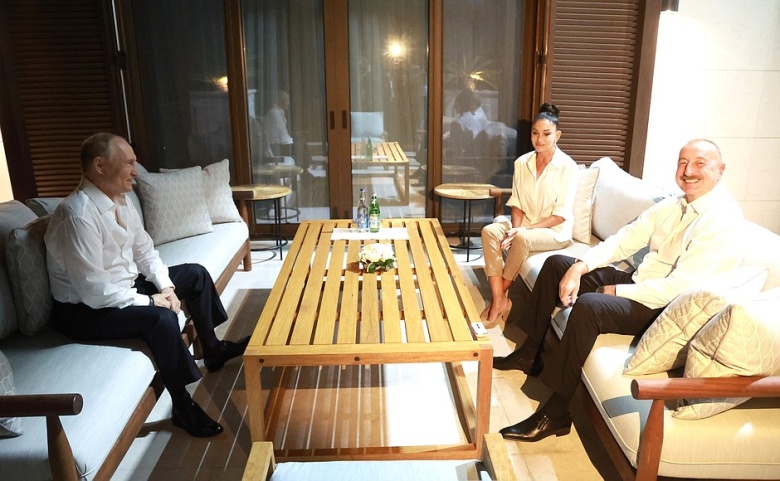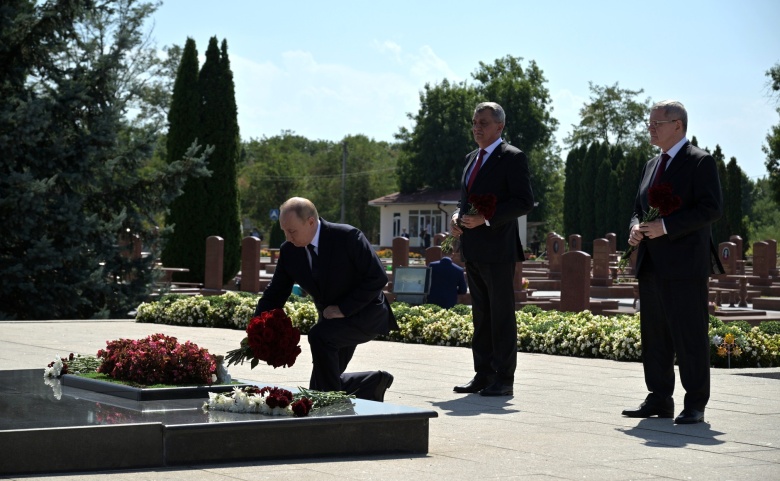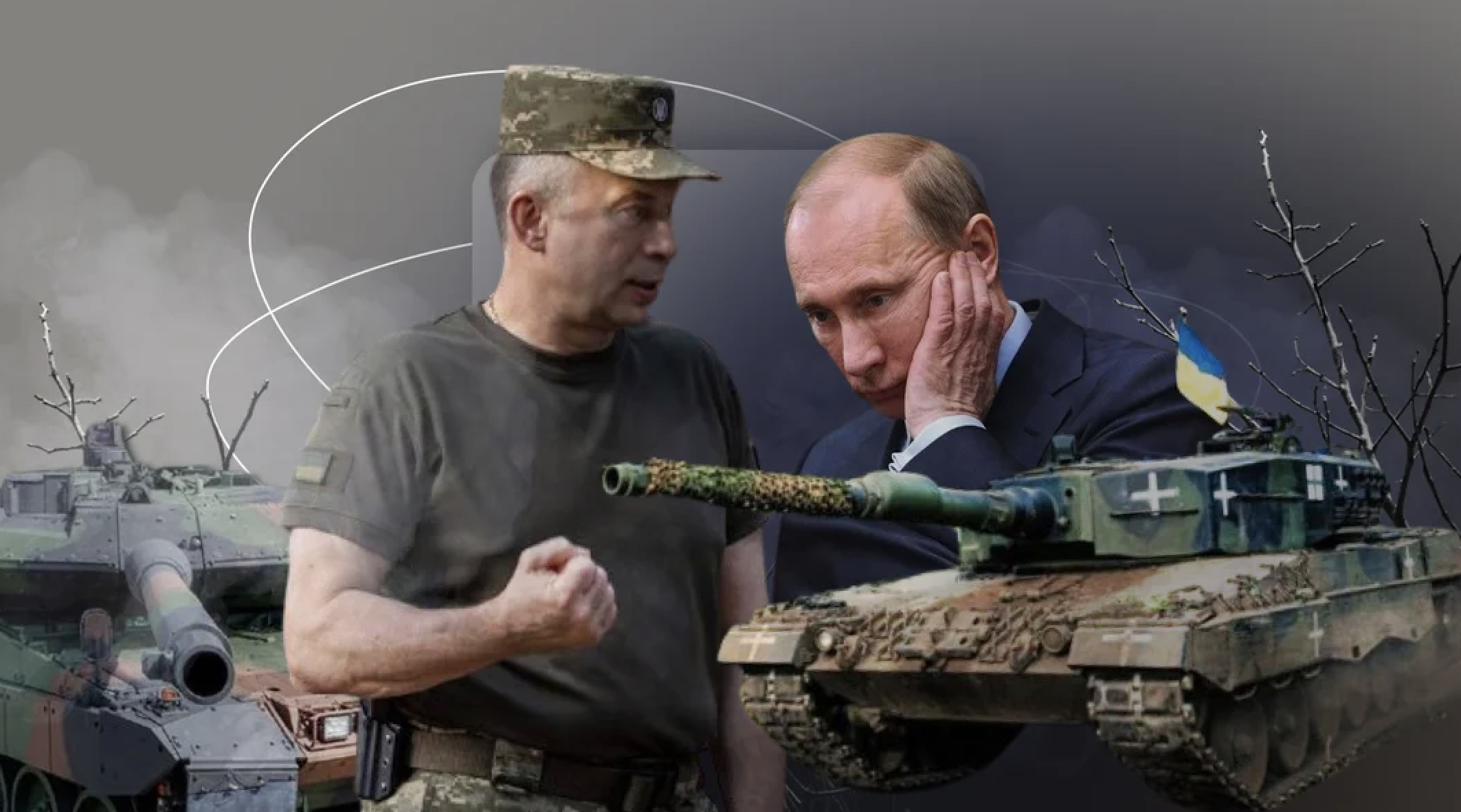Putin's silence: Why is he traveling in the Caucasus while the Ukrainian Army advances deep into Russia?
Putin reacts to Ukrainian Forces’ Invasion of Kursk?
By Alexander Zhelenin, originally published on the Republic website
The situation in the Kursk theater of military operations is becoming increasingly humiliating for Putin. According to the latest information from the Commander-in-Chief of the Ukrainian Armed Forces, Alexander Syrsky, Ukrainian troops now control 1,263 square kilometers and 93 settlements in the Kursk region.
He stated, “During the offensive in the Kursk region, the Ukrainian Armed Forces advanced 28 to 35 kilometers into the enemy’s defense.”
According to military observer Julian Röpcke from the German Bild, “The Ukrainian Armed Forces have captured the villages of Snagost and Apanasovka, and they are just 5 kilometers away from the Seym River and closing the ‘encirclement.’ Meanwhile, Ukrainian sources report that between 2,000 and 3,000 Russian soldiers remain trapped inside the encirclement.”
Putin’s failures are also humiliating for his influential supporters, like the Chechen leader Ramzan Kadyrov, who, as everyone recalls, promised to take Kursk “in three days.”
Now, Kadyrov has fallen silent in shame, attempting to distract the public from his embarrassment with fabricated stories about Elon Musk gifting him a Tesla Cybertruck. This, too, backfired on Kadyrov, as Musk firmly denied his claims.
The silence from the Russian leadership continues, while the Ukrainian Armed Forces are steadily advancing in the Kursk region. Meanwhile, Putin still hasn’t unleashed hellfire on Washington, London, Paris, and other enemy capitals—or even on his own Kursk region.

But what can he actually do now? Some in the blogosphere are calling for a general mobilization. But what next?
Millions of soldiers not only need to be clothed and fed, but also trained and armed. And this is where Russia is already facing problems.
- The Soviet-era stockpiles of weapons are not limitless. New weapons are being produced at a much slower rate than they are being consumed on the Ukrainian front.
- If Russia were to conscript several million people right now, who would work and produce the very weapons that are already in short supply? By the end of 2023, Russia was already facing a shortage of nearly 5 million workers.
- Nuclear strikes, whether against a NATO country or even Ukraine, are no longer an option. Moscow has been made very clear on what would happen in such a scenario: NATO would immediately enter the war in Ukraine with all its forces, with dire consequences for the Russian army. And in that case, Putin himself would become a legitimate target for American precision missiles.
So what else can Putin do in his current situation? He could strike at “decision-making centers,” as the Kremlin puts it. There was another such raid on Kyiv. But according to Ukrainian media, all the drones, and more importantly, the ballistic missiles from the “Iskanders,” were shot down.
Previously, defending against ballistic missiles was the biggest challenge for Ukrainian air defense. But now, everything was intercepted. It’s possible that this was the work of the Ukrainian F-16s, which were largely acquired by Kyiv for this purpose.
Simultaneously, there have been puzzling diplomatic maneuvers by Putin in recent days.
He made a more than strange “official visit” to Baku during the night under these extraordinary circumstances.
The question arises—why? According to pro-government media, Putin was discussing Russian gas supplies with Azerbaijani president Ilham Aliyev.
But is this really what the head of state should be doing when enemy troops are steadily advancing into his country?

The next fleeting diplomatic news is equally intriguing.
The American agency Bloomberg reported that during his upcoming visit to Kyiv on August 23, Indian prime minister Narendra Modi might deliver a message from Putin to president Volodymyr Zelensky.
When was the last time Putin personally addressed Zelensky, even through international intermediaries? This has not happened even before the large-scale Russian invasion of Ukraine, let alone during the past two and a half years of war.
Another strange and surprising action by Putin occurred on August 20.
For the first time in 20 years, since the Beslan school hostage crisis, he visited and knelt before the memorial to the 333 victims of the September 1, 2004, terrorist attack. What does this signify?
In a situation where his future is uncertain, has he decided to atone for one of his most horrific crimes?

Here’s another interesting piece of information from the Ukrainian side.
On August 20, UNIAN, citing Politico, reported that Kyiv plans to use a negotiation format with Moscow similar to the one successfully employed in the grain deal.
The report notes that negotiations between Ukraine and Russia were not conducted directly but through an intermediary—Turkey.
Interestingly, the same report from Politico was relayed on the same day without any comment by the government’s Rossiyskaya Gazeta.
On the same day, Apti Alaudinov, commander of the Kadyrov`s “Akhmat” battalion, recorded an intriguing video. On the day Ukrainian forces entered the Kursk region, he cheerfully advised Russians not to worry and to stock up on popcorn, suggesting that they would soon be defeated. Now, he is again making predictions.
He claims that the war will end not only in the Kursk region but across the entire territory of the “Special Military Operation” within two to three months. I can agree with him on this. I have repeatedly written that Russia cannot endure such a war for three years.



















